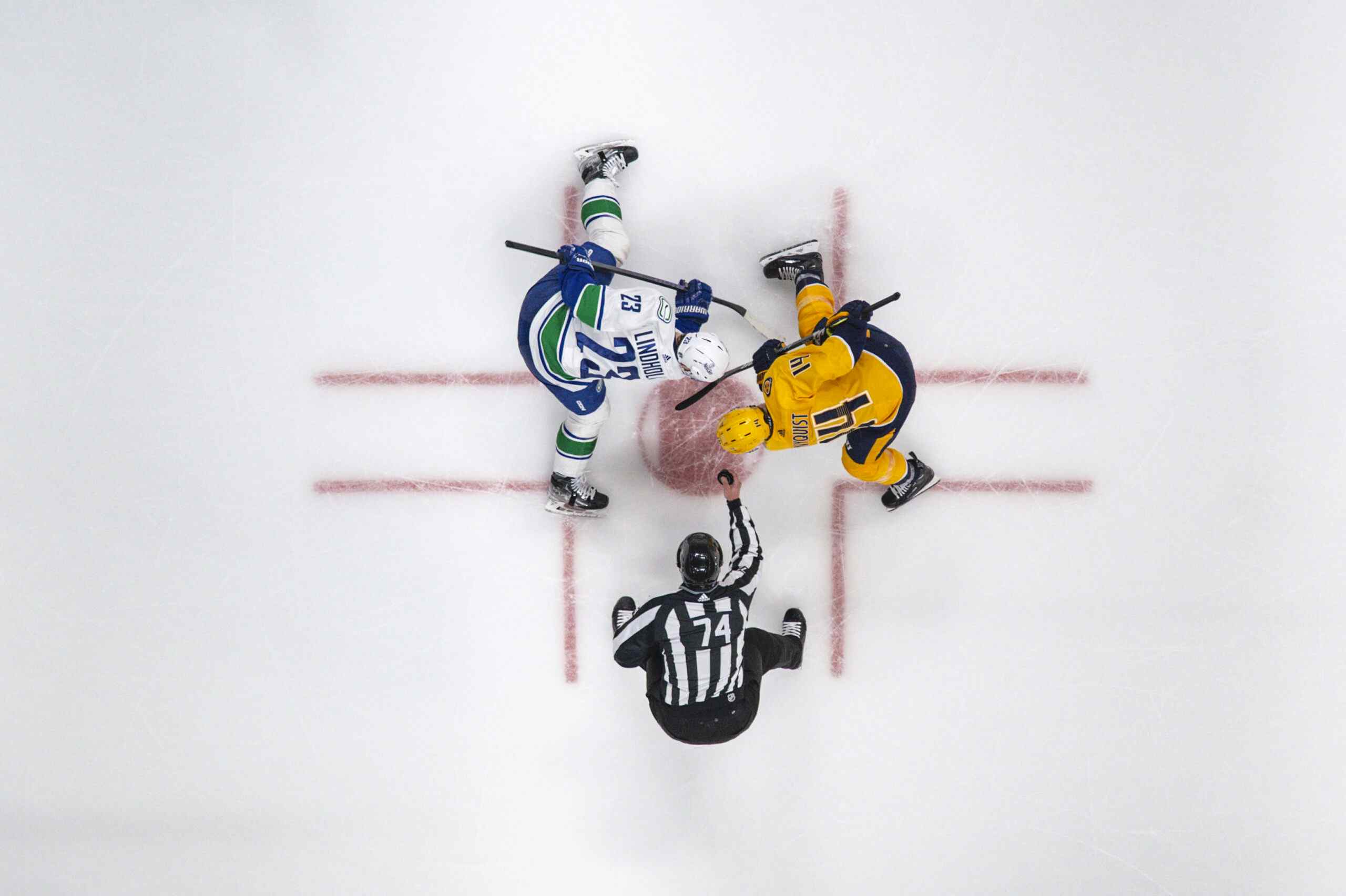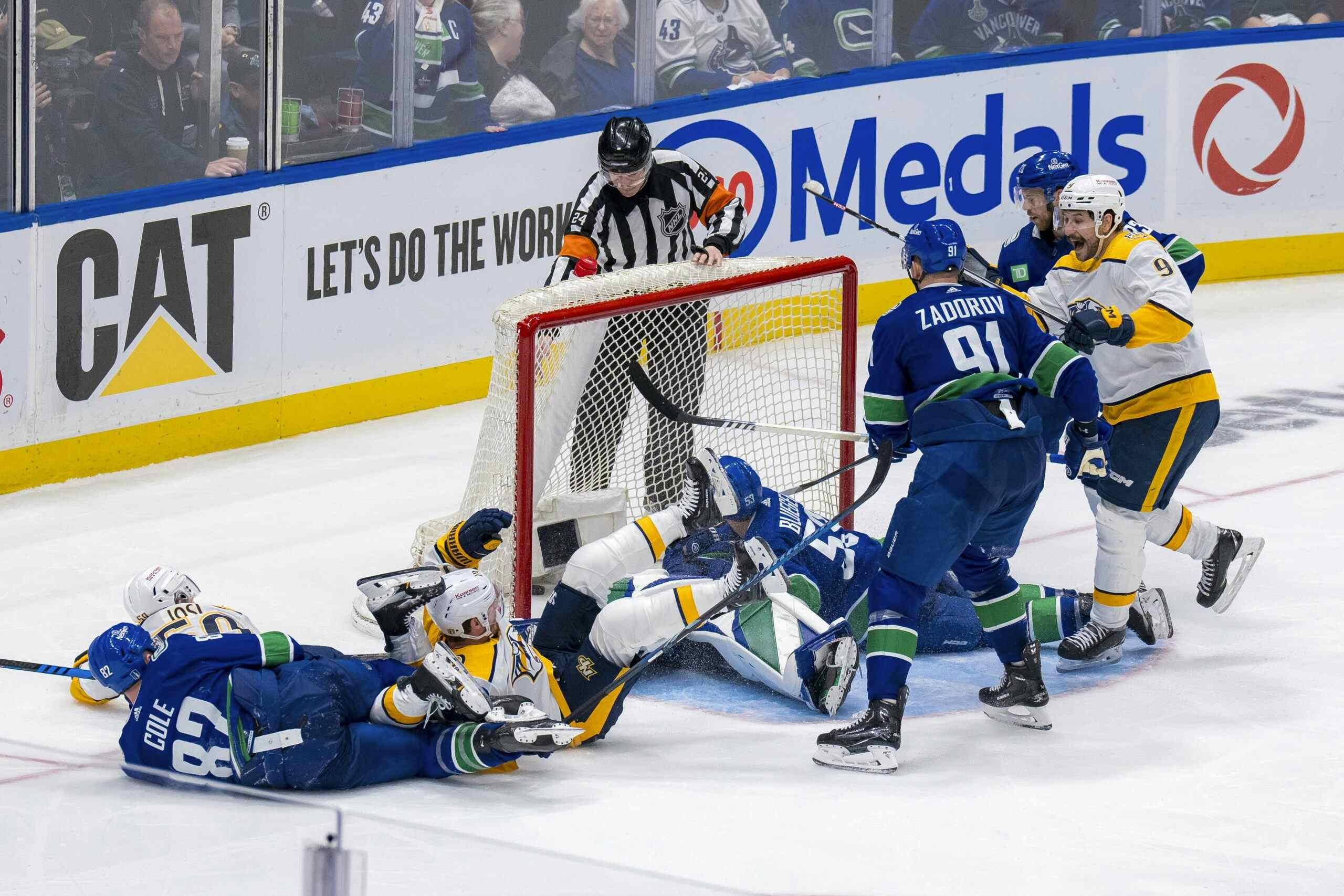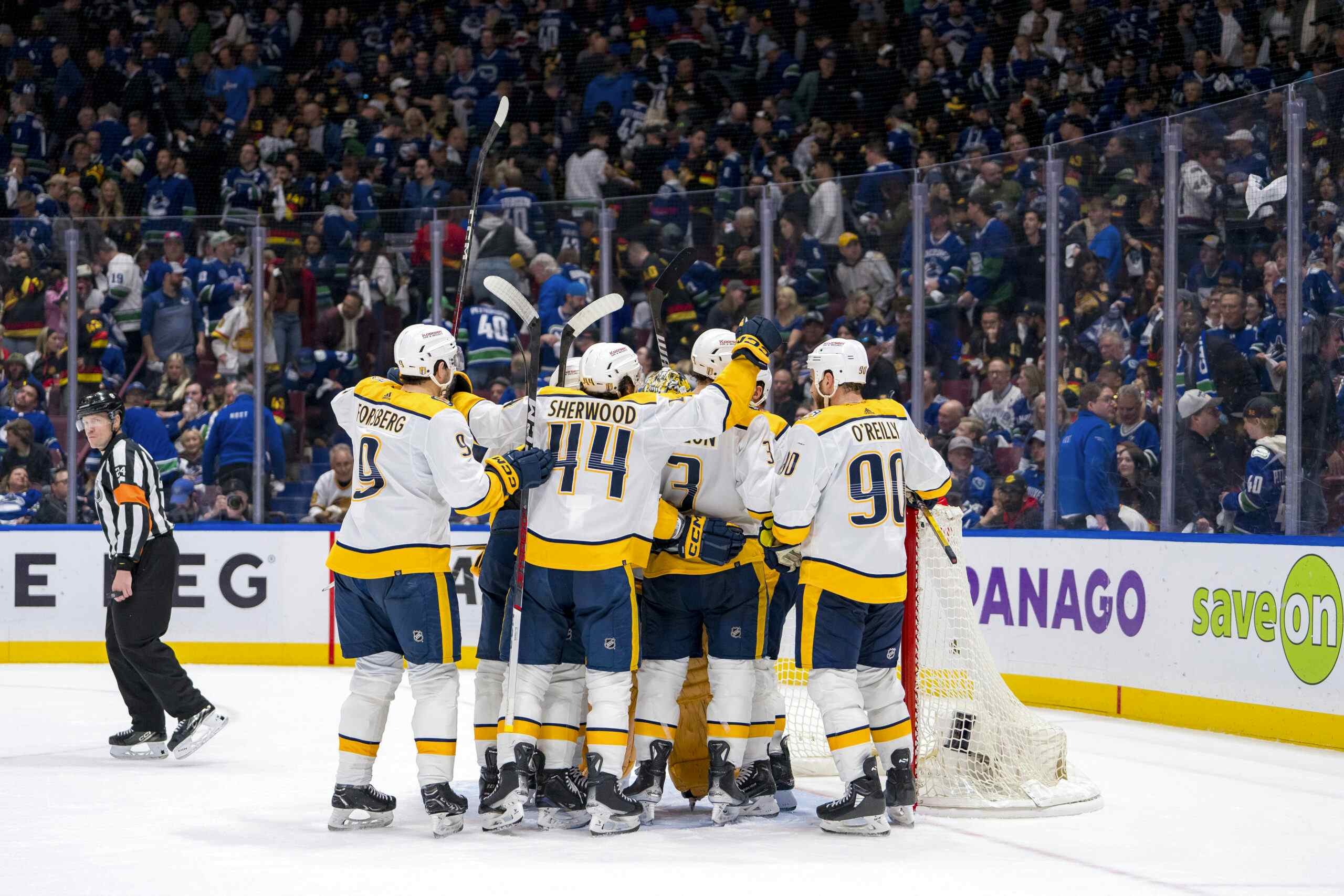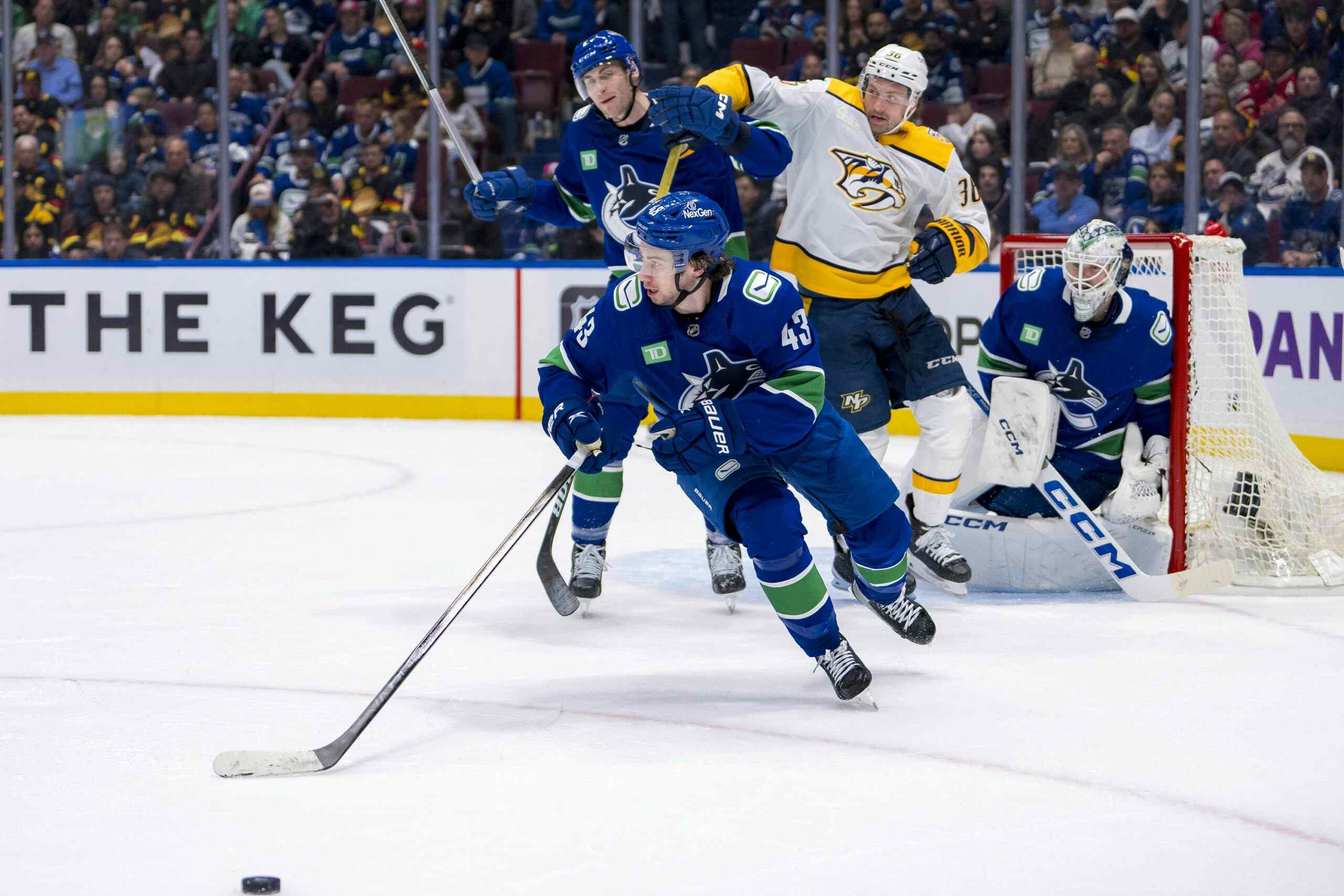Market Inefficiencies: Waiver Wire
7 years ago
The NHL is made up of 30 teams vying for one prize. They may not all be at the same part of that process, but ultimately, the goal for every team is to win the Stanley Cup (and make money along the way).
With the implications of the salary cap running concurrent with that common goal, every team is working from the same starting point. It’s an efficiency contest, first and foremost. Teams should tap into any unexplored market, and exploit any and all advantage found therein.
One such market that’s come into the spotlight in Vancouver the past few weeks is the waiver wire. Players forced from their team’s rosters, be it for performance or numbers game related reasons, find themselves on waivers before they can be sent down to their team’s AHL affiliate or outright bought out. While they’re on the waiver wire, every team in the league has a chance to claim said player.
Teams looking to add a player from the waiver wire can do so without surrendering a piece from their asset base to do so. There are obviously going to be teams where this isn’t deemed necessary, or even worth the trouble. The Vancouver Canucks, though, aren’t one of those teams.
Jason Botchford touched on this topic in the Provies on Sunday. I figured it best to expand on those thoughts, though.
The Canucks have 45 salaried player contracts and a few injuries to their lineup. I’d assume the Canucks are maintaining that cushion against the 50 contract maximum is by design, as it grants them added flexibility to take on multiple contracts further down the road. Who knows, maybe they’re saving a spot or two for a roster claim? If that’s the case, we’re just unsure which player they have in mind considering the players they’ve passed on so far.
The Argument in Favour of Claiming Players
Dylan McIlrath, Sven Andrighetto, Seth Griffith (twice), Magnus Paajarvi, Emerson Etem (twice) and Teemu Pulkkinen (twice) have all made their way to the waiver wire. The Canucks passed on every single player. Something we obviously disagree with, as countless articles can attest.
Jeremy Davis, J.D. Burke and Jackson McDonald made compelling arguments in favour of each player as a worthwhile waiver claim. In summation, each player was either added value in terms of offence or territorial play, or worth the risk to find out if they could be useful. Some of them even had upside!
They’re all flawed players, naturally. That they haven’t established themselves as full-time NHL players attest to as much. Even so, the players we’ve covered would, at the very least, present an immediate upgrade on players currently on the Canucks roster.
Take McIlrath, for example. Claiming McIlrath would’ve likely forced Alex Biega from the Canucks lineup and forced him on waivers as a result. That could put the Canucks in a pickle. They need to expose a defenceman that meets the requirements for the expansion draft. Biega is 19 games away from eligibility, a likely factor in his continued time with Vancouver. Of course, Luca Sbisa is just 13 games away from eligibility himself, so that’s becoming more of a moot point. If they don’t meet that requirement, it would force them to expose a player that they likely want to protect.
The Florida Panthers saw enough in McIlrath to trade for him. They likely felt he was an upgrade over Steven Kampfer, who they traded along with a conditional seventh-round pick for McIlrath.
Among the forwards who cleared, almost any of those players would be an immediate upgrade over Skille, Chaput or Jayson Megna. At the very least, they’d make the Canucks a faster, younger team.
After the Toronto Maple Leafs claimed Seth Griffith from the Boston Bruins, they placed him on waivers, where the Panthers snagged him. The Carolina Hurricanes claimed Martin Frk from the Detroit Red Wings, tried him out, weren’t impressed and dispatched of him just as quickly as he’d come to town. The Red Wings exposed Pulkkinen on waivers, where the Wild made a savvy claim, before putting him on waivers again for reassignment to the Iowa Wild.
All this indicates the players better acquainted with waivers this season aren’t likely to provide a huge boost to their new teams, but at the very least, they’re worth the trouble. Who knows, you might even get lucky and one of those players can put it together with your teams.
At this point, the Canucks need to take the risk for the reward.
An Argument for why the Canucks Didn’t
We’d be naive to assume the Canucks didn’t have valid reasons for passing on every player. Perhaps they don’t see these players as an upgrade on what they already have. Most would disagree with that assessment. If they felt Pulkkinen’s skating was such a detriment that even his puck skills couldn’t make him a net positive, that makes sense.
Another thought that’s crossed my mind is that they have a sense of loyalty to the players they already have. The Canucks didn’t baulk at the thought of offering Biega a two-year one-way deal after he worked so extremely hard to get to the NHL. Waiving him less than a year later probably wouldn’t look or feel good. There isn’t a place for loyalty in sports, and this is a business, so I’d tend to disagree with that notion. I understand where they’d be coming from, though.
Some people have suggested concern about waiver priority resetting – which is something that I covered late last month. It doesn’t reset when you acquire a player through waivers. Other people have suggested it’s money related, that they wouldn’t want to pay these players to then send them down to the minors. But the differences are negligible over the course of the season.
Mentioned above, they likely want to keep the contract spots to keep their options open.
Even though the Canucks are coming off a victory over the Dallas Stars, there are still some concerns with this lineup. The waiver wire has provided some intriguing options that would’ve provided the Canucks with tangible upgrades on the peripheries of their lineup. Would Griffith come in and score twenty goals? Extremely unlikely that would happen, but he would give the Canucks a better option as the 13th forward than Skille or Chaput.
This is why the waiver wire should be viewed as a market inefficiency. Other teams have deemed these players not good enough to stick on their roster, but given the Canucks position last year and so far this season you have to think long and hard about how these players would help the local team.
In the case of McIlrath, he was a former 10th overall pick (although that was a reach) who had trade value up until very recently. Now he was available for free, then traded for another contract. This is why it’s an area of market inefficiency and something that the Canucks should explore more.
If it doesn’t work out, all of the aforementioned players are pending RFA’s. If they don’t do well with their opportunity, place them on waivers and help Utica out. Then you can not qualify them, and they are gone by the end of the season.
On the flip side, you would hate to be that team that didn’t give a player a chance, then see him flourish somewhere else.





